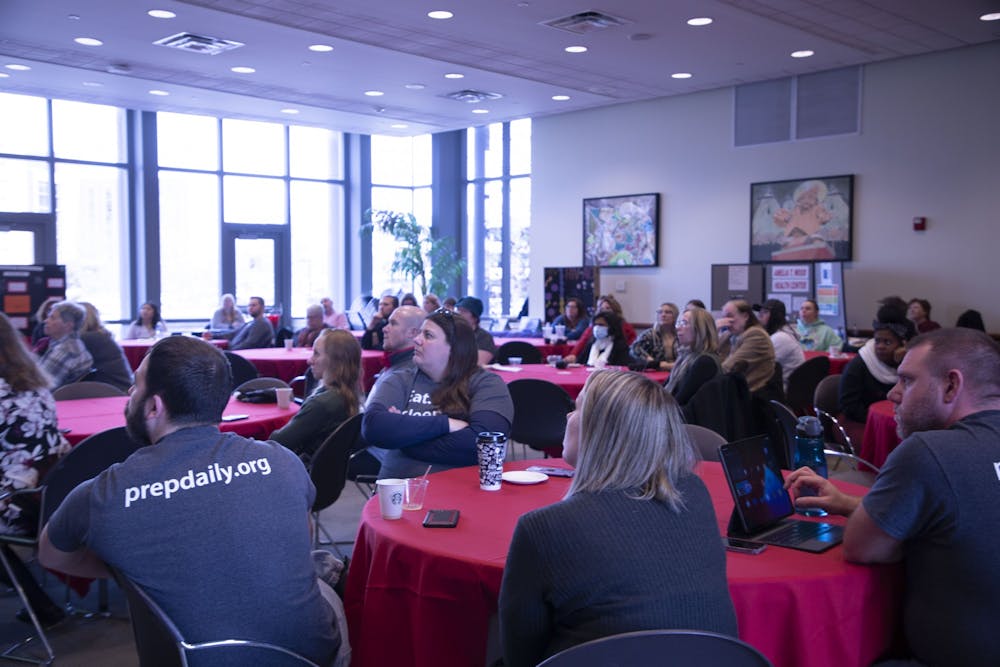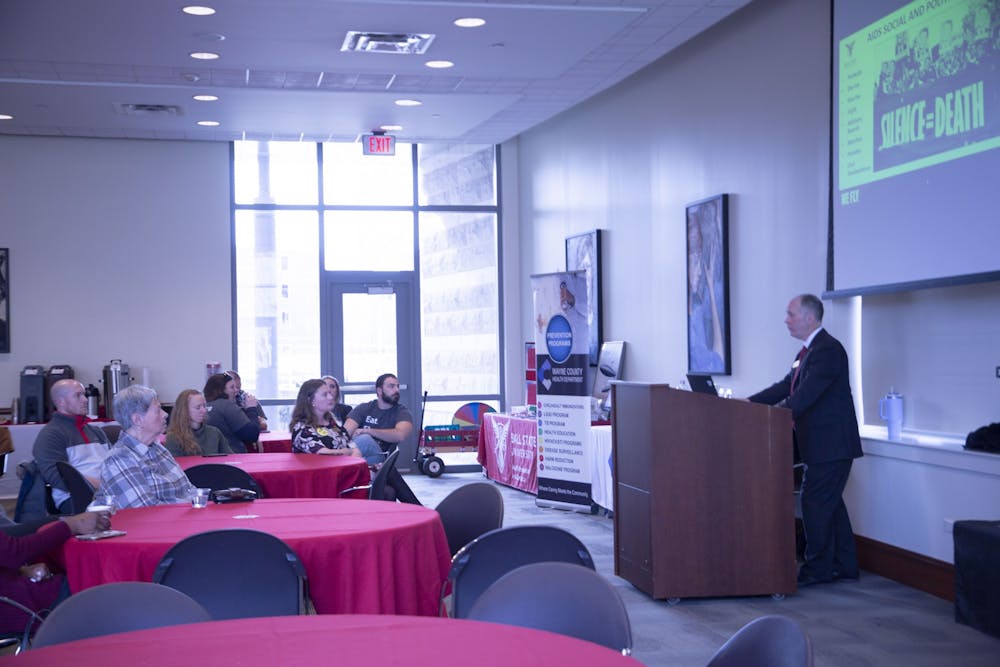Nowadays, when the word “pandemic” is mentioned, some might immediately think of COVID-19. This is not the pandemic most are referring to Dec. 1 of every year.
The first day of the 12th month of the year is dedicated to World AIDS Day. This day allows for unity of those fighting against this illness, remembering the 35 million people around the world who have lost their lives to this illness and providing continuous education on HIV/AIDS.
Ball State University’s Health and Promotion Advocacy (HPA) and Multicultural Center held a World AIDS Day event in Park residence hall Dec. 1 from 11 a.m. - 2 p.m. Destiny Cherry, health and wellness coordinator of HPA, said this was the first time World AIDS Day was recognized in a large event at Ball State.
“The goal [of this event] is to raise awareness of HIV and AIDS, and also to remember the people that have been lost to HIV and AIDS,” Cherry said. “We thought it would be a good idea to have students talk to some community partners who do things like HIV testing [and] safer sex conversations.”
Cherry said when it comes to talking about HIV/AIDS, it is important to recognize how sex education plays a role in the education of this pandemic. Dr. Scott Rutledge, Ball State dean of the College of Health, spoke at the event where he discussed how people at almost all stages of life are engaging in sex. He said there needs to be continuous sex education throughout one’s life to prevent the spread of both Sexually Transmitted Diseases (STD) and HIV/AIDS.
Eli Greathouse, first-year Ball State child-life and early intervention major, said they think the current sex education on campus is “fantastic”. However, as the public relations director for the LGBTQ+ group on campus, Spectrum, they do think there should be more LGBTQ+ representation in what is taught.
“It is really difficult for us, as Spectrum, to get the LGBTQ+ [representation] in [Ball State’s sex education] because communication in general throughout the departments in Ball State is difficult,” Greathouse said. “Spectrum is rebranding…so we are working on making a better impact on specifically the LGBTQ+ population.”
Ball State provides a variety of sex education resources within HPA, including providing free HIV testing once a month. Cherry said HPA is also planning to provide free Sexually Transmitted Infection (STI) testing next semester, as well as having multiple days during each month for HIV testing, as it would make that service more accessible to students.

In his speech, Rutledge highlighted the stigma surrounding HIV/AIDS. Huy Huynh, assistant director of Ball State’s Multicultural Center, said the word “AIDS” itself is filled with a stigma that deter people from talking about it.
“In a lot of different communities, AIDS is used pretty often [in a bad way],” Huynh said. “So it really stigmatizes the word and what it actually is. That is a huge issue that we need to address when it comes to AIDS.”
One of the aspects in World AIDS Day is addressing the common misconceptions surrounding HIV/AIDS. Cherry said, there are many Ball State students who believe these misconceptions.
“[There] are students who think that HIV is spread through kissing or sharing drinks, and that’s not true,” Cherry said. “There’s misconceptions on how it spreads, there’s a lot of misconceptions on if it’s still an issue or not… it still impacts a lot of people, not only in the U.S. but in the entire world. There’s still a lack of education and knowledge on [HIV/AIDS].”
Rutledge also discussed the inequalities and disparities within the HIV/AIDS pandemic. According to hiv.gov, in 2019 African Americans accounted for 40.3 percent of HIV/AIDS cases and made up 13.4 percent of the U.S. population, and Latinos accounted for 24.7 percent of HIV/AIDS cases and made up 18.5 percent of the U.S. population. Huynh said part of the cause for these disparities are because of the roadblocks preventing these communities from getting access to resources.
“[African American and Latino communities] will have difficulty with access to resources, access to care, access to services, access to science in general,” Huynh said. “That’s where [some] misconceptions come into because they play into those disparities.”
Greathouse said events hosted by HPA and the Multicultural Center, like World AIDS Day, are important because they give students an opportunity to learn about stigmatized topics. They discussed how college creates freedom for students to learn.
“Events like this are important, especially on a college campus, because this is many people’s first time away from home, first time making their own decisions, first time setting their own values [and] boundaries,” Greathouse said. “Everyone comes from a different background and therefore some people may have either a biased education or no access to education. It’s very important to educate people so that less discrimination and hate and death happens.”
For more information on upcoming HPA and Multicultural Center events, check out @bsu_hpa and @bsumulti on Instagram.
Contact Maya Kim with comments at mayabeth.kim@bsu.edu or on Twitter @MayaKim03





The Daily News welcomes thoughtful discussion on all of our stories, but please keep comments civil and on-topic. Read our full guidelines here.